Question
What are some helpful tips to manage stress?
Answer
There are some simple things you can do at work. Progressive muscle relaxation can help you to relieve tension in your muscles. Over time you become accustomed to your own tension and you stop noticing that you are tight. Sore muscles, particularly in your neck and your shoulders, come from chronic tension. With progressive muscle relaxation, it lets go of that tension. Slowly tense and relax your muscles, one group, at a time. Start with your toes, and work all the way up to your neck and then back down again. With some practice, you start to increase your awareness of when you are actually tensing up and you start to let go of that tension.
Visualization is another one. Go to your happy place like a mental vacation whether it is a beach or a mountain. It could also be your favorite chair in your living room. Any place other than work will fit the bill. Close your eyes and spend a couple of minutes there. Do not just visualize it, but you should also engage your senses. In this place, what would you hear, smell, touch, and taste? Tap into those memories.
Deep breathing is becoming more aware of your breath. This increases the supply of oxygen to your brain and provides a state of calmness. You can really focus your body and quiet your mind. There are one million ways to do this. Some have visualization, and some do not. Some hold it for a count and let it go. I really do not think it matters.
We have already talked a little bit about engaging your senses. The key is to find out what sense is most helpful for you. For some, it is listening to music. For others, it is visual like looking at family photos. Scented hand lotion or sucking on a favorite candy might calm your senses. Figure out something that is easy and simple.
Finally, laughter is the best medicine. You have to try to find that silver lining and humor right now. It could be a funny meme, funny photo, or a cartoon. Sometimes this serves as a really good reminder not to take life so seriously.
Simple Stress Relievers
- Start your day off right
- Be clear on requirements
- Stay away from conflict
- Stay organized
- Be comfortable
- Forget multitasking
- Walk at lunch
- Keep perfectionism in check
- Listen to music on the drive home
Above is a list of simple stress relievers. There is a reason they say that breakfast is the most important meal of the day. Start the day off with good nutrition, proper planning, and a really good attitude. You might find that the stress just rolls off your back if you do. Be clear on requirements. Try to stop from falling into a trap of thinking that you are not doing enough. Talk to your supervisor and make sure that you are clear on your requirements. Stay away from conflict. It is harder now than ever, but try to avoid those conflicts. Do not gossip or share too many personal opinions. Steer clear of the things that you know are going to cause conflict. Try to stay organized. This can get a little tough when we are all under one roof all day long. The more organized you can be, the less stress you will have in other places. Along with this, stick to a routine as well. If you are set up for success, small things that can be distracting or cause frustration like noise or lighting might not be an issue. Forget multitasking. I think we learned this a long time ago. Try chunking or doing dual-tasking because that will certainly relieve stress as well. Walking at lunch and getting some fresh air can be a game-changer. If you cannot get outside, the simple exercises I am going to share with you can help. Keep your perfectionism in check. Again, you might feel good about yourself, but being a perfectionist can drive you crazy. This can also drive the people around you crazy as well. Try to give up that control.
Simple Yoga Poses
Some things that you can do include yoga poses. Figure 1 shows the seated crescent moon pose.
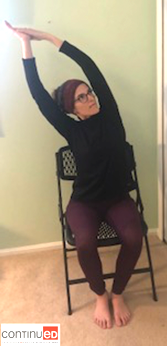
Figure 1. Example of seated crescent moon pose (Image ©2020 continued, LLC).
Lift your arms overhead. Stretch your fingers wide and lean to the right, taking two or three deep breaths. Switch sides and do the same thing. Figure 2 shows a seated backbend.
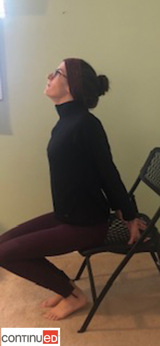
Figure 2. Example of a seated backbend (Image ©2020 continued, LLC).
You are going to reach all the way up to the ceiling with your arms open wide. As you exhale, start to look behind you and bend slightly from your upper back and your chest, putting your arms behind you. Hold it for a few seconds and then let it go. Wrist and finger stretches are shown in Figure 3.
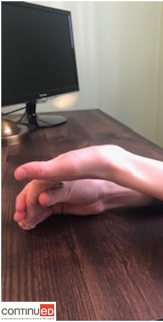
Figure 3. Example of finger stretches (Image ©2020 continued, LLC).
This is particularly helpful if you are working at a desk quite a bit. Do some wrist circles, spread your fingers, and open and close your fists five or 10 times to reduce some stress. The next position is called a seated twist in Figure 4.
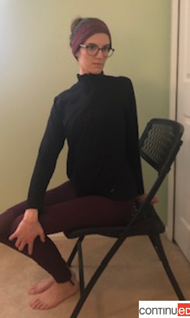
Figure 4. Example of a seated twist (Image ©2020 continued, LLC).
For this, you sit tall in your chair and inhale and then twist to one side from the bottom of your spine. This is moving more from your abdomen versus your back. Then, grab your armrest or the side of your chair, breathe in, and then go to the other side. Figure 5 shows the chair pigeon pose.
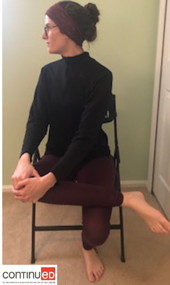
Figure 5. Example of the chair pigeon pose (Image ©2020 continued, LLC).
You start with your feet on the floor. Cross one leg over the other at a 90-degree angle, and then stay in an upright seated position. Twist a little if you can. You should feel a gentle to moderate stretch on the thigh, and you hold that again five or 10 breaths and move to the other side. The sit-to-stand pose can be seen in Figure 6.
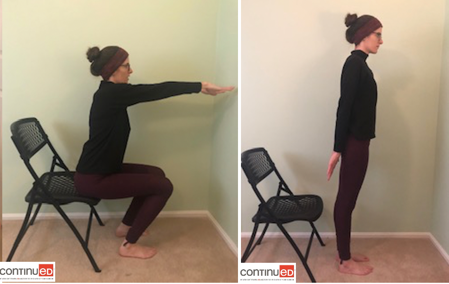
Figure 6. Example of the sit-to-stand pose (Image ©2020 continued, LLC).
In this one, you start at a seated position, and you try to stand up just by pushing down through your heels and not using the arms and not leaning really far forward. Then, as you sit down, you are doing the same. Completing this exercise 5-10 times will really help to awaken those leg muscles. Figure 7 shows a desk upward dog pose.
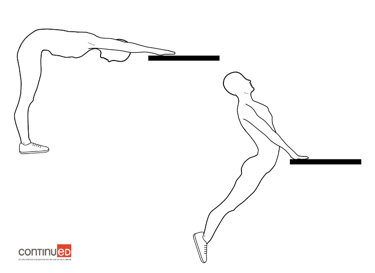
Figure 7. Example of a desk upward dog pose (Image ©2020 continued, LLC).
With arms straight, you lower your hips toward the desk refraining from sinking in the lower back. Then, stretch your chest between your shoulders. Gently lift up your chin and hold it for five or 10 breaths. Finally, Figure 8 shows a forward fold.
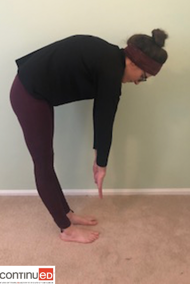
Figure 8. Example of a forward fold (Image ©2020 continued, LLC).
Let gravity take over and hold it for about 20 seconds. You are not trying to touch the floor but just going as far forward as you can. You might be thinking that you do not have time for this. However, these only take a few minutes. This is something you can do on a quick break on your way back from the restroom or whatever, and it makes a huge difference in relieving some of the stress that you can hold in your muscles.
This Ask The Expert is an excerpt from the webinar, Sustaining the Well-Being of Healthcare Workers During Coronavirus
